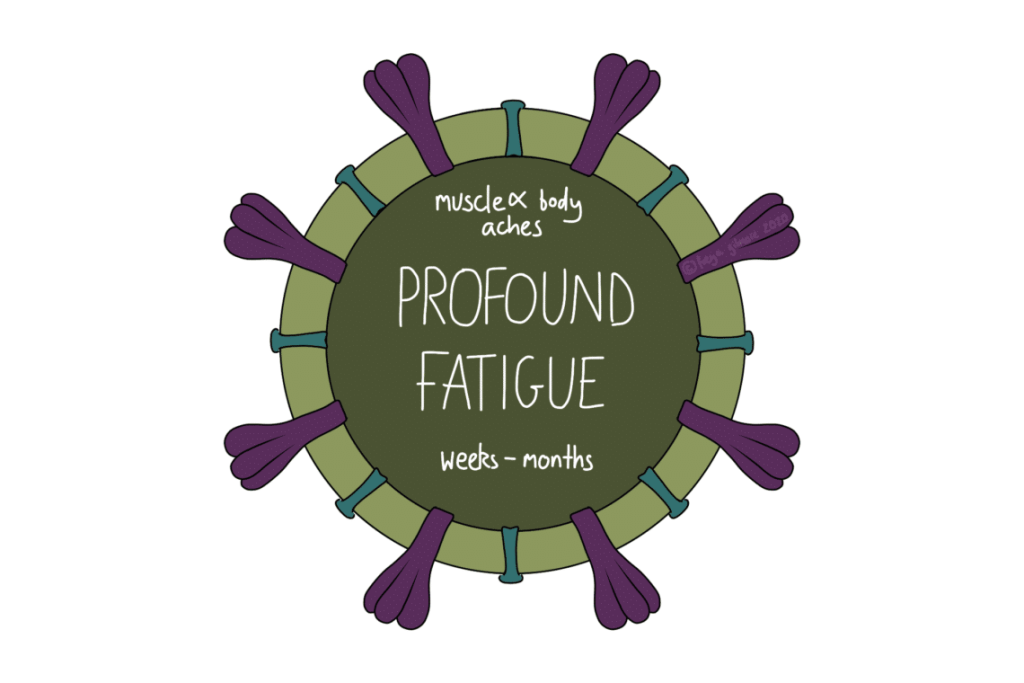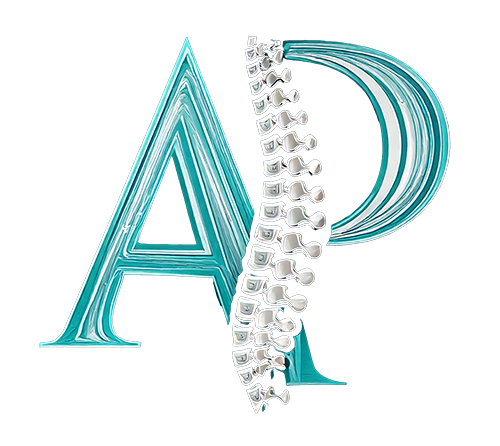Long Covid
Long Covid is a poorly understood condition, and new information is still emerging. This post was last updated in February 2022

Early reports (before the vaccine roll-out) suggested that around 4.5% of people who contracted covid would still suffer the effects 8 weeks later. 2.3% still had symptoms 12 weeks after onset. However, we expect to see fewer new cases of long covid now that the majority of the adult population has been vaccinated. ONS reports that people are 13% less likely to report LC symptoms after the first jab, and 9% less likely again after the second.
Symptoms of Long Covid
The most common symptoms, as identified by a survey of over 1500 LC patients, were:
- fatigue (affecting the vast majority of those surveyed)
- muscle aches
- shortness of breath
- difficulty concentrating
- inability to exercise
- headache
There are a number of cross overs in these symptoms with conditions like ME/CFS and fibromyalgia. Osteopaths are qualified to help manage the symptoms of fibromyalgia.
As muscle aches and headaches are symptoms that we often help with, it’s important that we are informed about Long Covid. Patients may come to clinic looking for pain relief without realising that their symptoms are the long term effects of a covid infection.
Management Strategies
As LC is a new condition, management protocols are few and far between. There have been articles published in medical journals suggesting potential strategies, such as one in the BMJ. This post recognises the difficulty in managing LC, but also the importance of a multidisciplinary approach.
Initial assessment should be done by your GP or hospital team. Pre-existing conditions can be affected by LC, for example blood sugar management in diabetes can be more difficult. Your medical team can also watch out for red flags and other complications.
When your team is happy with your progress, you may benefit from a wider multidisciplinary team. The BMJ article mentioned above puts emphasis on mental health support, return to exercise where appropriate, and improving general health. If you do not receive sufficient support to rebuild your capacity for exercise, your osteopath can take on this role. We can prescribe and monitor exercises, while addressing the mechanical changes that may contribute to your reduced ability.
Changes in Breathing and Osteopathy
We have written before about the role of stress on breathing. When the diaphragm is dysfunctional, breathing is less efficient, and smaller muscles are recruited to help around the shoulders. This can be associated with headaches– another feature of long covid. Work to the diaphragm and associated muscles aims to improve breathing efficiency. With this we hope that you will be able to breathe deeper and easier, improving fatigue and exercise capacity. With these muscles under less demand, muscular pains in the shoulders and neck should begin to settle.

